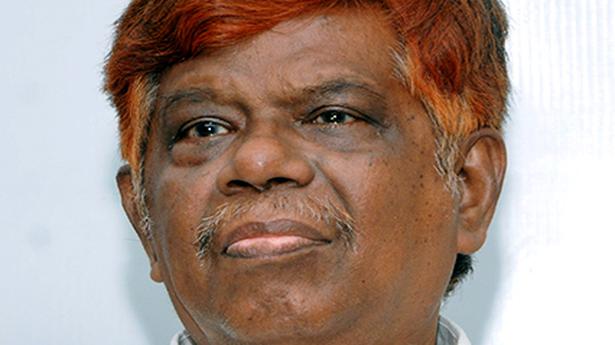
Former Madras HC judge Chandru recalls journey from Bar to Bench in autobiography
The Hindu
He has not minced words in hard-hitting book
Justice K. Chandru, a retired judge of the Madras High Court, is a household name in Tamil Nadu. He became famous pan-India after the phenomenal success of Suriya-starrer Jai Bhim. The movie was based on just one case conducted by him when he was a lawyer, but his autobiography I too became a judge, released in Tamil recently, is a compendium of numerous hair-raising adventures.
True to its title, the book explains how he, a rebel, student leader, Communist, labour lawyer and fierce critic of the judiciary, was able to rise from the Bar to the Bench. The most interesting aspect of the book is that the former judge has not minced words while making startling claims and named every person, be it politicians or judges, whom he encountered in unsavoury incidents.
The book begins with the death of Annamalai University student P. Udayakumar on July 23, 1971, after a police lathi charge against students who had gathered for a protest opposing award of an honorary doctorate to the then Chief Minister M. Karunanidhi. Then, Mr. Chandru, a leader of the Students Federation of India (SFI), had examined witnesses before a judicial commission appointed to inquire into the police atrocity.
He recalls with shock how Perumalsamy, father of Udayakumar, turned into a hostile witness and deposed before the commission that the body recovered from a pond close to the convocation venue was not that of his son. He also reveals having seen the witness having been brought to the inquiry commission on that day in a white Ambassador car by two men wearing dhotis lined with the colours of the DMK flag.
Despite all this, when his name was considered for judgeship in 2006, the then Chief Minister Jayalalithaa had objected to it but Karunanidhi did not raise any objection though there was a change in regime that year, he adds. The rigours of the Emergency declared in 1975, the arrest of many political leaders, including the present Tamil Nadu Chief Minister M.K. Stalin, and the atrocities committed against them in prison form part of the book.
There is also no dearth of humour in the book as the former judge recalls how his Tamil teacher in school used to call him an ‘underground Communist’ for always preferring to sit on the last bench.













